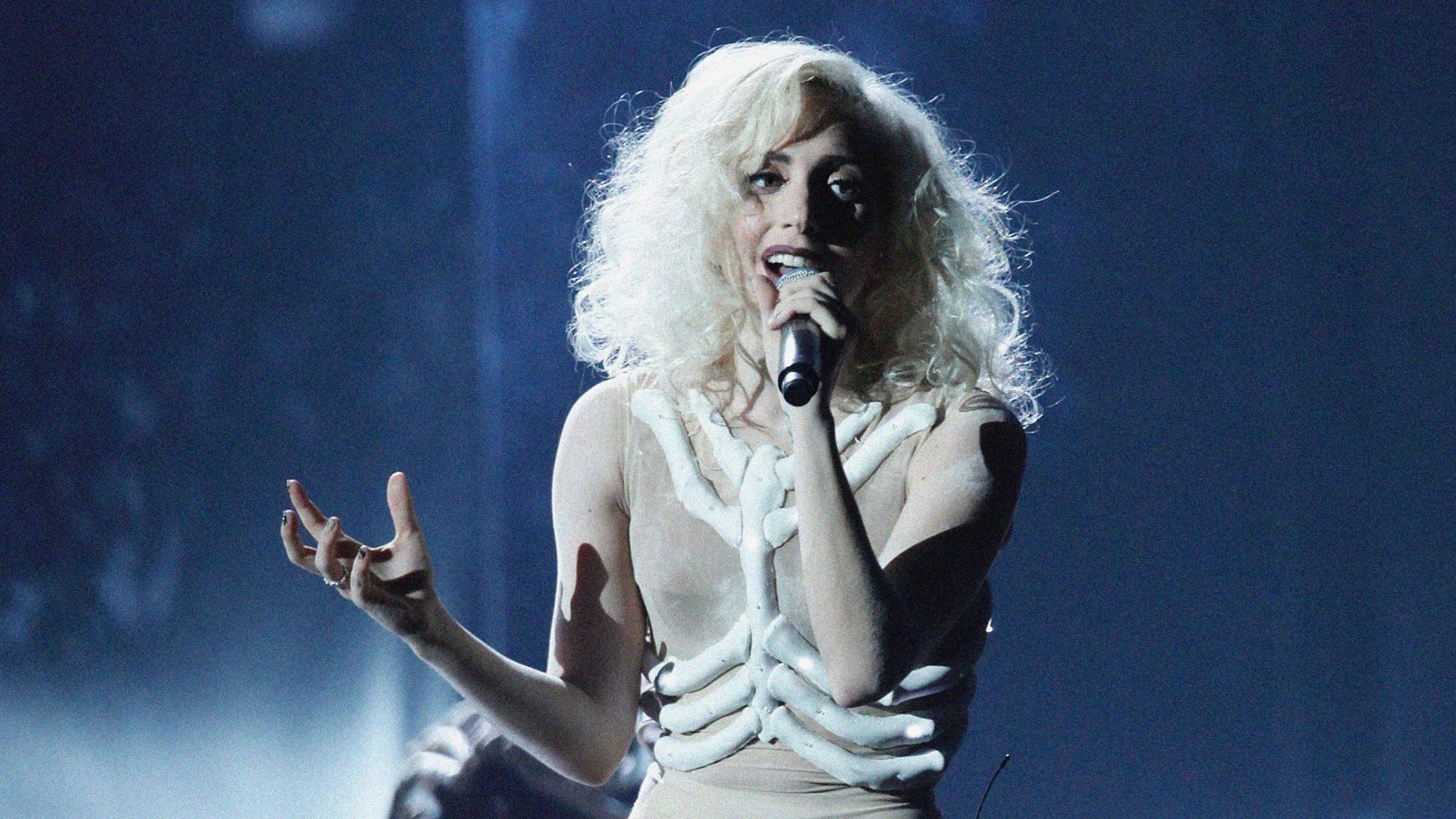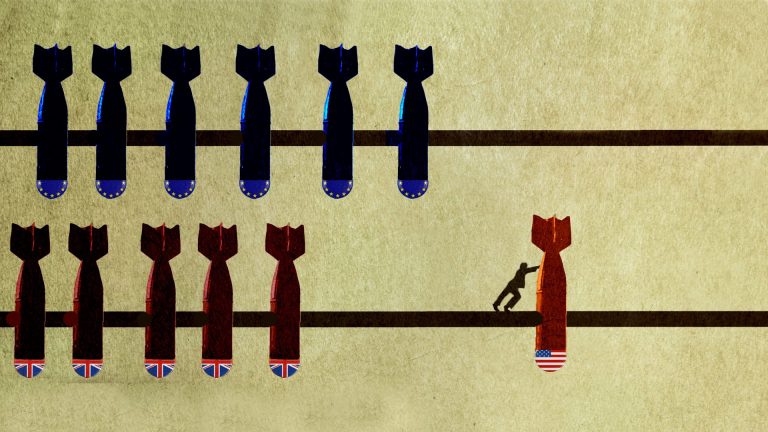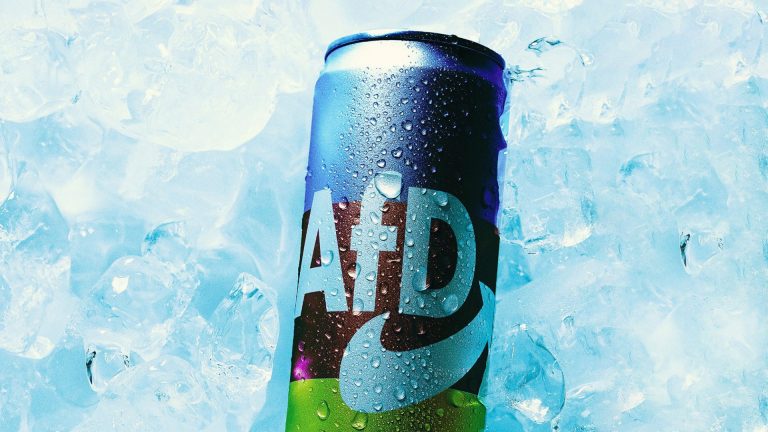It’s a gloriously sunny day in London and I’m feeling optimistic. I wake up, chug a glass of water, drink my coffee and eat a high-protein breakfast. I check the news – mostly bad – then turn to social media for some algorithmic affirmations. A TikTok tarot reader predicts that all my dreams are about to come true; Instagram informs me I have two new followers; the horoscope app Co-Star tells me that, today, I have “power in thinking and creativity”. About time.
Finally, I open Spotify and put on my “daylist”, a feature that curates ever-changing playlists catered to the time of day and my own particular tastes. This morning, it decides I’m having a “recession pop club classics Tuesday morning” and spits out hyper-hedonistic songs by Charli xcx, FKA twigs and Shygirl. I let the bass thump through my headphones and load the washing machine.
The first time Spotify used the word “recession” to describe a playlist of club bangers I winced. Songs with hooks such as “I don’t care”, “Just dance” and “The world is my oyster” hardly felt like a fitting soundtrack to the current state of society – an economic landscape where supermarkets are security tagging bottles of olive oil, while one in five people in the UK lives in poverty. But over time, as I’ve absorbed more and more pop culture through screens, I’ve realised that this linguistic irony is simply the current vibe. A recession is no longer only understood as economic decline; it’s a mood, an aesthetic and an in-joke.
Just look at how the term “recession indicator” has recently infiltrated fashion and pop culture commentary. Once the preserve of financial analysts, it’s now being used to explain everything from the runway returns of peplum tops, office wear and Alexander McQueen skulls, to beauty trends like “recession blonde” (aka “I can’t afford to get my roots touched up”).
On social media, users are racing to identify the most obscure and unlikely recession indicators for clout – the increasing use of fresh fruit and vegetables in fashion campaigns, for instance, or Coachella’s dwindling ticket sales. The term has appeared in fashion articles published by Vogue Business, GQ and Dazed. For $58, you can even buy an ironic 2008 financial crisis memorial T-shirt, courtesy of Praying, the edgy, celeb-loved IYKYK brand that last year dropped a Melania Trump hoodie.
Where’s all this coming from? Blame Lady Gaga. Not for the actual looming recession, of course – we can keep pointing fingers at Donald Trump for that – but for the zeitgeist’s casual reappropriation of the word. You see, “recession pop” was first coined in a 2009 Irish Independent article by the journalist Ed Power, who made the case that Lady Gaga, with her extraterrestrial costumes and dance-till-you-die ethos, was a perfect “pop star for the credit-crunch era” – she provided escapism, basically. Fast-forward 16 years, and the same can be said about Charli xcx, whose unrelenting and unapologetic dedication to the sesh borders on nihilism. “Should we do a little key? Shall we have a little line?” she sings on 365, before proclaiming that she “never go[es] home, don’t sleep, don’t eat”. It’s little wonder, then, that the term resurfaced last July, while brat summer was at its peak.
It also helps that pop culture has generally looked back at the late noughties and early 2010s through rose-tinted glasses in recent years. The post-pandemic “indie sleaze” revival valorised the music and aesthetics of the era’s hedonistic club culture; people like Beth Ditto, Sky Ferreira and legendary party photographer The Cobrasnake began appearing on mood boards again; new artists such as The Dare, The Hellp and Fcukers set to work updating the indie sleaze sound for a new generation.
At first, everyone assumed that the return of these trends was nothing more than the latest stop on fashion’s quickening nostalgia loop – we’d already exhausted the 90s and early noughties, after all. But once people cottoned on to the economic parallels between now and then, there was no going back. Everything is now a “recession indicator”. We’re steeling ourselves for the next great depression by satirising it into fads. It hardly helps that Lady Gaga has taken a break from cinema and returned to form as a pop disruptor. But the real queen of recession pop 2.0? Kesha, whose new single with T-Pain, Yippee-Ki-Yay, dropped just before Trump’s tariffs. “Heard there’s recession or something,” reads a caption on one of her promotional TikTok videos, as she pretends to read the Los Angeles Times business section. “Oh we may not be eating, but keSha [sic] keeps us fed,” reads one comment.
This is all par for the course in Gen Z-Millennial internet humour, a specific blend of layered irony and absurd juxtaposition that tackles existential dread with memes. Yes, it’s partly a consequence of being “too online”. But it’s also a result of growing up and realising the world won’t work for us in the same way it did for our parents.
As adults, we’ve known nothing but crises and political chaos – corrupt leaders, wars, riots, a pandemic, failing job, property and stock markets, crumbling healthcare systems and backslides into misogyny, racism and classism. Humour has always been a fantastic coping mechanism, but right now, it often feels as if the only way to assert a semblance of control is to admit we have none, via jokes and vibes. I meme, therefore I am.
Yet, as we hurtle towards what appears to be an inevitable global recession – which would make it the UK’s third since 2020 – I can’t help but find these offhand references in pop culture a little dystopian. The very idea of a recession is being repurposed and commodified, training us to disconnect from the real, brutal consequences of economic hardship: unemployment, homelessness and widening inequality, as if it could get any worse.
I get the jokes. I understand the desire to escape, dance the night away and live a carefree life. I, too, wish I could numb myself to reality with unbridled hedonism. But when I see the word “recession” in pop culture commentary, it reminds me of how I felt last summer, when typically left-leaning people began ironically praising Trump’s comedic timing. In the end, the joke is always on us.
Later in the week, on another gloriously sunny day in London, I am once again in a good mood, fuelled by a litany of dopamine hits delivered through my phone and a purposeful decision to avoid checking the news – today, I am gifting myself a “delulu” and “smooth brain”.
Then, I get a cold, hard reality check: a source of income I’d been relying on unexpectedly disappears. Another casualty of the economy. I return to my recession pop playlist and burst into tears in the street. Selena Gomez’s new single Bluest Flame floods into my ears. One line, in particular, stands out amongst the sugar rush optimism and excessive auto-tune: “I just wanna go insane”.









